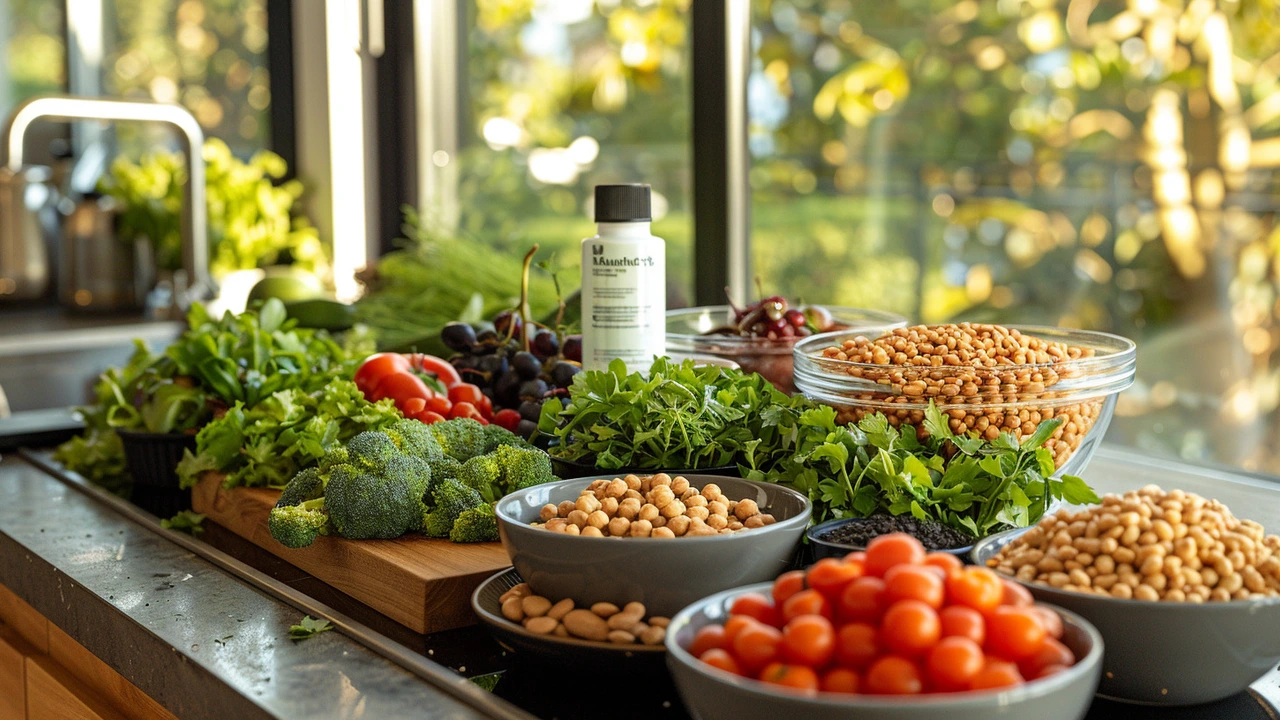Nutrition: Simple Steps to Better Health, Real Supplements, and Safer Meds
Poor food choices can make you feel sluggish, worsen chronic conditions, and even change how medications work. You don’t need a perfect diet to get better results—small, practical changes make the biggest difference. Read on for clear, useful tips you can use right away.
Everyday food rules that actually work
Start with a balanced plate: half vegetables and fruit, a quarter lean protein, and a quarter whole grains. That’s an easy visual and it helps control blood sugar, weight, and energy. Aim for color—different vegetables give different nutrients. Add a source of healthy fat like olive oil, avocado, or a small handful of nuts to help your body absorb fat-soluble vitamins.
Protein matters at every meal. Try eggs, beans, fish, Greek yogurt, or lean chicken. If you’re plant-based, combine beans with whole grains or nuts through the day to get complete amino acids. Keep fiber high—vegetables, whole oats, lentils, and berries help digestion and blood sugar control.
Hydration is more than water: herbal tea and water-rich foods like cucumber and watermelon count. Cut down sugary drinks first; swapping one soda a day for water or sparkling water saves a lot of calories and reduces blood sugar spikes.
Smart supplement choices and safety
Supplements can help when food falls short, but they’re not magic. Pick supplements with evidence for your need—like vitamin D in winter, iron for diagnosed deficiency, or omega-3s if you don’t eat fish. The Pumpkin Dietary Supplement article on this site shows how single-ingredient options can target real needs.
Look for third-party testing (USP, NSF, or ConsumerLab). That helps ensure the product contains what the label claims and isn’t contaminated. Check dosage on the label and avoid mega-doses unless a clinician recommends them. More is not always better—some vitamins and minerals can cause harm at high levels.
Always tell your doctor or pharmacist about any supplement you take. Herbs and vitamins can change how prescription drugs work. For example, supplements that affect blood thinning, blood sugar, or blood pressure can interact with common meds. If you buy online, favor reputable pharmacies and compare prices—our site covers safe ways to order medication and tips to avoid scams.
Practical week-one plan: swap refined grains for whole grains at two meals, add one extra serving of vegetables daily, include protein at breakfast, and check your current supplements for third-party testing. Book a quick check-in with your provider if you’re on medications that require monitoring.
Small steps each week add up to steady, lasting gains. Use food first, supplements when needed, and keep medication safety front and center. If you want, browse our nutrition and supplement posts for deeper how-tos and product reviews tailored to real-world use.
Molybdenum, a trace mineral often overlooked, holds surprising benefits for athletes seeking peak performance. By supporting enzyme function and helping breakdown crucial nutrients, this powerful supplement can enhance energy levels and improve overall health. While molybdenum is found in certain foods, supplementation ensures athletes maintain optimal levels for maximum benefit. Let's dive into what makes molybdenum a game-changer for athletic success and how to incorporate it into your training routine.
Discover how specific dietary habits can complement the effects of Atomoxetine. This article dives into the interaction between food and ADHD medication, providing practical tips on what to eat for optimal results. Learn how your diet can support medication effectiveness and overall well-being.


